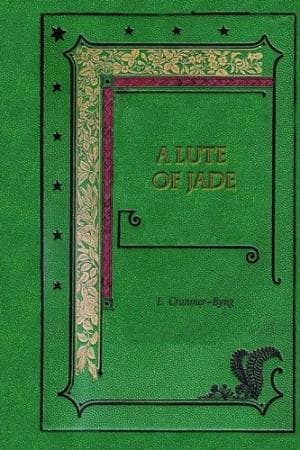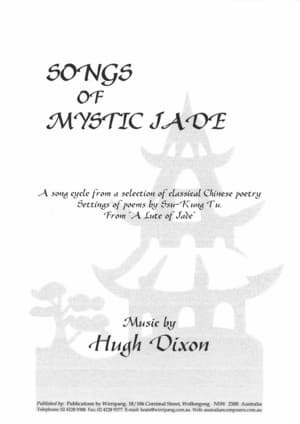Launcelot A. Cranmer-Byng (1872-1945) was a prolific author, translator and editor who published hundreds of articles and compiled numerous books in a variety of languages. His possibly most famous collection is titled “A Lute of Jade.” It was first issued in 1909 and has been continuously re-printed until this day. It basically presents an anthology of selections of the Classical Poets of China.

Launcelot A. Cranmer-Byng: A Lute of Jade
In the preface, he explains, “as editors we desire above all things that, in their humble way, these books shall be the ambassadors of good-will and understanding between East and West—the old world of Thought and the new of Action. In this endeavor, and in their own sphere, they are but followers of the highest example in the land. They are confident that a deeper knowledge of the great ideals and lofty philosophy of Oriental thought may help to a revival of that true spirit of Charity which neither despises nor fears the nations of another creed and color.”
Hugh Dixon: Songs of Mystic Jade (Wendy Dixon, soprano; David Miller, piano)

Hugh Dixon © sounz.org.nz
A Lute of Jade certainly caught the imagination of Australian-born Hugh Dixon, who moved to New Zealand in 1940. He was trained as a trumpeter and teacher, working successfully in both fields as a professional musician and a music educator. He professionally played with the Auckland Philharmonia, and he privately taught brass instruments and music theory for almost 2 decades. As a composer he primarily responded to requests from his son Michael (horn), daughter Wendy (soprano), and daughter Norine (violin).

Hugh Dixon: Songs of Mystic Jade
His Songs of Mystic Jade, originally written in 1984 but later revised, sets poems by Ssu-K’ung T’u (A.D. 834-908). Little is known of his life, and the poet did not enjoy widespread familiarity in Europe. However, he is considered the “most Chinese of the poets, and certainly one of the most philosophical. By his subtly simple method of treatment, lofty themes are clothed in the bright raiment of poetry.”
For more of the best in classical music, sign up for our E-Newsletter
